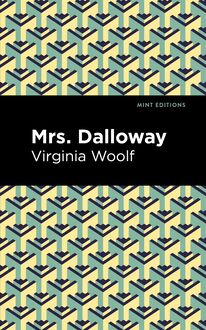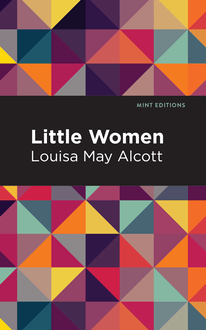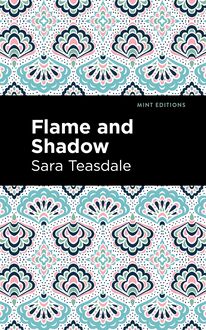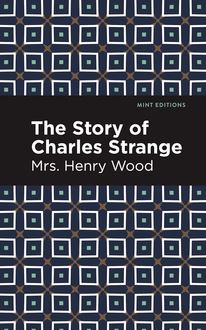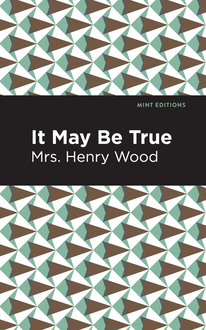-
 Univers
Univers
-
 Ebooks
Ebooks
-
 Livres audio
Livres audio
-
 Presse
Presse
-
 Podcasts
Podcasts
-
 BD
BD
-
 Documents
Documents
-
- Cours
- Révisions
- Ressources pédagogiques
- Sciences de l’éducation
- Manuels scolaires
- Langues
- Travaux de classe
- Annales de BEP
- Etudes supérieures
- Maternelle et primaire
- Fiches de lecture
- Orientation scolaire
- Méthodologie
- Corrigés de devoir
- Annales d’examens et concours
- Annales du bac
- Annales du brevet
- Rapports de stage
La lecture à portée de main
Vous pourrez modifier la taille du texte de cet ouvrage
Découvre YouScribe en t'inscrivant gratuitement
Je m'inscrisDécouvre YouScribe en t'inscrivant gratuitement
Je m'inscrisEn savoir plus
Vous pourrez modifier la taille du texte de cet ouvrage
En savoir plus

Description
Undine Spragg is a beautiful and ambitious, yet vain and socially dense young woman with dreams of marrying a rich man. Hoping for a life of prominence and luxury, Undine convinces her family to relocate to New York. The Spragg family, who have a earned their modest wealth from shady practices, are happy to accommodate Undine’s request. When Undine meets Ralph Marvell, an aspiring poet from a family of old New York high society, she is determined to become his wife. After a brief courtship, she gets her wish, however, Undine soon realizes that she is still unsatisfied. Though Ralph is a good husband—kind and doting, he does not have the money to support her extravagant lifestyle. While his family enjoys an elevated social status, it is mainly just reminiscent on a prior generation’s wealth; Ralph’s family does not possess a significant amount of money. Feeling judged by her in-laws and upset that she cannot purchase luxury items, Undine is unhappy in the marriage, feeling even worse after the birth of their son, Paul. Often neglectful of Paul, Undine begins an affair with an aristocrat named Peter. As their love affair intensifies, Undine becomes set on leaving Ralph, ignoring the possible consequences of being a divorcee in pursuit of money, sex, and social status. With narrative twists and memorable characters, The Custom of the Country by Edith Wharton is a fast-paced story that explores the nuances of American society. Through themes of class, lovely prose and intricate satire, The Custom of the Country pays special attention to the social class divides of 20th century America. While Wharton’s novel allows modern readers to gain perspective on a specific era in America, contemporary audiences can also reflect on the ways this class system still effects social customs today. This edition of The Custom of the Country by Edith Wharton now features a new, eye-catching cover design and is printed in a font that is both modern and readable. These accommodations cater to a modern audience, allowing contemporary readers to enjoy the compelling narrative of The Custom of the Country with ease.
Sujets
Informations
| Publié par | Mint Editions |
| Date de parution | 07 mai 2021 |
| Nombre de lectures | 0 |
| EAN13 | 9781513275611 |
| Langue | English |
| Poids de l'ouvrage | 2 Mo |
Informations légales : prix de location à la page 0,0500€. Cette information est donnée uniquement à titre indicatif conformément à la législation en vigueur.
Extrait
The Custom of the Country
Edith Wharton
The Custom of the Country was first published in 1913.
This edition published by Mint Editions 2021.
ISBN 9781513270616 | E-ISBN 9781513275611
Published by Mint Editions®
minteditionbooks.com
Publishing Director: Jennifer Newens
Design & Production: Rachel Lopez Metzger
Typesetting: Westchester Publishing Services
C ONTENTS I II III IV V VI VII VIII IX X XI XII XIII XIV XV XVI XVII XVIII XIX XX XXI XXII XXIII XXIV XXV XXVI XXVII XXVIII XXIX XXX XXXI XXXII XXXIII XXXIV XXXV XXXVI XXXVII XXXVIII XXXIX XL XLI XLII XLIII XLIV XLV XLVI
I
“ U ndine Spragg—how can you?” her mother wailed, raising a prematurely-wrinkled hand heavy with rings to defend the note which a languid “bell-boy” had just brought in.
But her defence was as feeble as her protest, and she continued to smile on her visitor while Miss Spragg, with a turn of her quick young fingers, possessed herself of the missive and withdrew to the window to read it.
“I guess it’s meant for me,” she merely threw over her shoulder at her mother.
“Did you ever , Mrs. Heeny?” Mrs. Spragg murmured with deprecating pride.
Mrs. Heeny, a stout professional-looking person in a waterproof, her rusty veil thrown back, and a shabby alligator bag at her feet, followed the mother’s glance with good-humoured approval.
“I never met with a lovelier form,” she agreed, answering the spirit rather than the letter of her hostess’s enquiry.
Mrs. Spragg and her visitor were enthroned in two heavy gilt armchairs in one of the private drawing-rooms of the Hotel Stentorian. The Spragg rooms were known as one of the Looey suites, and the drawing-room walls, above their wainscoting of highly-varnished mahogany, were hung with salmon-pink damask and adorned with oval portraits of Marie Antoinette and the Princess de Lamballe. In the centre of the florid carpet a gilt table with a top of Mexican onyx sustained a palm in a gilt basket tied with a pink bow. But for this ornament, and a copy of “The Hound of the Baskervilles” which lay beside it, the room showed no traces of human use, and Mrs. Spragg herself wore as complete an air of detachment as if she had been a wax figure in a show-window. Her attire was fashionable enough to justify such a post, and her pale soft-cheeked face, with puffy eye-lids and drooping mouth, suggested a partially-melted wax figure which had run to double-chin.
Mrs. Heeny, in comparison, had a reassuring look of solidity and reality. The planting of her firm black bulk in its chair, and the grasp of her broad red hands on the gilt arms, bespoke an organized and self-reliant activity, accounted for by the fact that Mrs. Heeny was a “society” manicure and masseuse. Toward Mrs. Spragg and her daughter she filled the double role of manipulator and friend; and it was in the latter capacity that, her day’s task ended, she had dropped in for a moment to “cheer up” the lonely ladies of the Stentorian.
The young girl whose “form” had won Mrs. Heeny’s professional commendation suddenly shifted its lovely lines as she turned back from the window.
“Here—you can have it after all,” she said, crumpling the note and tossing it with a contemptuous gesture into her mother’s lap.
“Why—isn’t it from Mr. Popple?” Mrs. Spragg exclaimed unguardedly.
“No—it isn’t. What made you think I thought it was?” snapped her daughter; but the next instant she added, with an outbreak of childish disappointment: “It’s only from Mr. Marvell’s sister—at least she says she’s his sister.”
Mrs. Spragg, with a puzzled frown, groped for her eye-glass among the jet fringes of her tightly-girded front.
Mrs. Heeny’s small blue eyes shot out sparks of curiosity. “Marvell—what Marvell is that?”
The girl explained languidly: “A little fellow—I think Mr. Popple said his name was Ralph”; while her mother continued: “Undine met them both last night at that party downstairs. And from something Mr. Popple said to her about going to one of the new plays, she thought—”
“How on earth do you know what I thought?” Undine flashed back, her grey eyes darting warnings at her mother under their straight black brows.
“Why, you said you thought—” Mrs. Spragg began reproachfully; but Mrs. Heeny, heedless of their bickerings, was pursuing her own train of thought.
“What Popple? Claud Walsingham Popple—the portrait painter?”
“Yes—I suppose so. He said he’d like to paint me. Mabel Lipscomb introduced him. I don’t care if I never see him again,” the girl said, bathed in angry pink.
“Do you know him, Mrs. Heeny?” Mrs. Spragg enquired.
“I should say I did. I manicured him for his first society portrait—a full-length of Mrs. Harmon B. Driscoll.” Mrs. Heeny smiled indulgently on her hearers. “I know everybody. If they don’t know me they ain’t in it, and Claud Walsingham Popple’s in it. But he ain’t nearly as in it,” she continued judicially, “as Ralph Marvell—the little fellow, as you call him.”
Undine Spragg, at the word, swept round on the speaker with one of the quick turns that revealed her youthful flexibility. She was always doubling and twisting on herself, and every movement she made seemed to start at the nape of her neck, just below the lifted roll of reddish-gold hair, and flow without a break through her whole slim length to the tips of her fingers and the points of her slender restless feet.
“Why, do you know the Marvells? Are they stylish?” she asked.
Mrs. Heeny gave the discouraged gesture of a pedagogue who has vainly striven to implant the rudiments of knowledge in a rebellious mind.
“Why, Undine Spragg, I’ve told you all about them time and again! His mother was a Dagonet. They live with old Urban Dagonet down in Washington Square.”
To Mrs. Spragg this conveyed even less than to her daughter, “’way down there? Why do they live with somebody else? Haven’t they got the means to have a home of their own?”
Undine’s perceptions were more rapid, and she fixed her eyes searchingly on Mrs. Heeny.
“Do you mean to say Mr. Marvell’s as swell as Mr. Popple?”
“As swell? Why, Claud Walsingham Popple ain’t in the same class with him!”
The girl was upon her mother with a spring, snatching and smoothing out the crumpled note.
“Laura Fairford—is that the sister’s name?”
“Mrs. Henley Fairford; yes. What does she write about?”
Undine’s face lit up as if a shaft of sunset had struck it through the triple-curtained windows of the Stentorian.
“She says she wants me to dine with her next Wednesday. Isn’t it queer? Why does she want me? She’s never seen me!” Her tone implied that she had long been accustomed to being “wanted” by those who had.
Mrs. Heeny laughed. “ He saw you, didn’t he?”
“Who? Ralph Marvell? Why, of course he did—Mr. Popple brought him to the party here last night.”
“Well, there you are… When a young man in society wants to meet a girl again, he gets his sister to ask her.”
Undine stared at her incredulously. “How queer! But they haven’t all got sisters, have they? It must be fearfully poky for the ones that haven’t.”
“They get their mothers—or their married friends,” said Mrs. Heeny omnisciently.
“Married gentlemen?” enquired Mrs. Spragg, slightly shocked, but genuinely desirous of mastering her lesson.
“Mercy, no! Married ladies.”
“But are there never any gentlemen present?” pursued Mrs. Spragg, feeling that if this were the case Undine would certainly be disappointed.
“Present where? At their dinners? Of course—Mrs. Fairford gives the smartest little dinners in town. There was an account of one she gave last week in this morning’s town talk : I guess it’s right here among my clippings.” Mrs. Heeny, swooping down on her bag, drew from it a handful of newspaper cuttings, which she spread on her ample lap and proceeded to sort with a moistened forefinger. “Here,” she said, holding one of the slips at arm’s length; and throwing back her head she read, in a slow unpunctuated chant: ‘ “Mrs. Henley Fairford gave another of her natty little dinners last Wednesday as usual it was smart small and exclusive and there was much gnashing of teeth among the left-outs as Madame Olga Loukowska gave some of her new steppe dances after dinner’—that’s the French for new dance steps,” Mrs. Heeny concluded, thrusting the documents back into her bag.
“Do you know Mrs. Fairford too?” Undine asked eagerly; while Mrs. Spragg, impressed, but anxious for facts, pursued: “Does she reside on Fifth Avenue?”
“No, she has a little house in Thirty-eighth Street, down beyond Park Avenue.”
The ladies’ faces drooped again, and the masseuse went on promptly: “But they’re glad enough to have her in the big houses!—Why, yes, I know her,” she said, addressing herself to Undine. “I mass’d her for a sprained ankle a couple of years ago. She’s got a lovely manner, but no conversation. Some of my patients converse exquisitely,” Mrs. Heeny added with discrimination.
Undine was brooding over the note. “It is written to mother—Mrs. Abner E. Spragg—I never saw anything so funny! ‘Will you allow your daughter to dine with me?’ Allow! Is Mrs. Fairford peculiar?”
“No—you are,” said Mrs. Heeny bluntly. “Don’t you know it’s the thing in the best society to pretend that girls can’t do anything without their mothers’ permission? You just remember that. Undine. You mustn’t accept invitations from gentlemen without you say you’ve got to ask your mother first.”
“Mercy! But how’ll mother know what to say?”
“Why, she’ll say what you tell her to, of course. You’d better tell her you want to dine with Mrs. Fairford,” Mrs. Heeny added humorously, as she gathered her waterproof together and stooped for her bag.
“Have I got to write the note, then?” Mrs. Spragg asked with rising agitation.
Mrs. Heeny reflected. “Why, no. I guess Undine can write it as if it was from you. Mrs. Fairford don’t know your writing.”
This was an evident relief to Mrs. Spragg, and as Undine swept to her room with the note her mother sank back, murmuring plaintively: “Oh, don’t go yet, Mrs.
-
 Univers
Univers
-
 Ebooks
Ebooks
-
 Livres audio
Livres audio
-
 Presse
Presse
-
 Podcasts
Podcasts
-
 BD
BD
-
 Documents
Documents
-
Jeunesse
-
Littérature
-
Ressources professionnelles
-
Santé et bien-être
-
Savoirs
-
Education
-
Loisirs et hobbies
-
Art, musique et cinéma
-
Actualité et débat de société
-
Jeunesse
-
Littérature
-
Ressources professionnelles
-
Santé et bien-être
-
Savoirs
-
Education
-
Loisirs et hobbies
-
Art, musique et cinéma
-
Actualité et débat de société
-
Actualités
-
Lifestyle
-
Presse jeunesse
-
Presse professionnelle
-
Pratique
-
Presse sportive
-
Presse internationale
-
Culture & Médias
-
Action et Aventures
-
Science-fiction et Fantasy
-
Société
-
Jeunesse
-
Littérature
-
Ressources professionnelles
-
Santé et bien-être
-
Savoirs
-
Education
-
Loisirs et hobbies
-
Art, musique et cinéma
-
Actualité et débat de société
- Cours
- Révisions
- Ressources pédagogiques
- Sciences de l’éducation
- Manuels scolaires
- Langues
- Travaux de classe
- Annales de BEP
- Etudes supérieures
- Maternelle et primaire
- Fiches de lecture
- Orientation scolaire
- Méthodologie
- Corrigés de devoir
- Annales d’examens et concours
- Annales du bac
- Annales du brevet
- Rapports de stage
